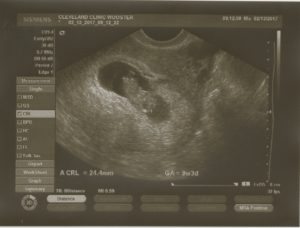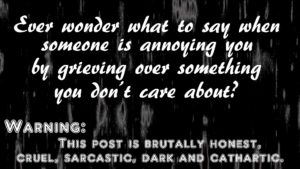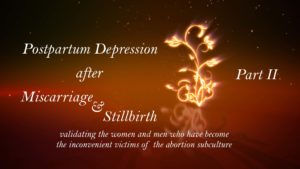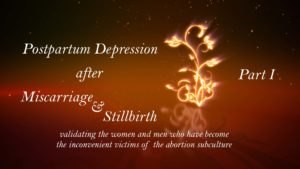Resetting Our “Mom” Boundaries. Comforting the Mourning on Mother’s Day.
I saw a social media post the other day, and it read “Calling all Moms” so I read it. It had a list of questions for “all moms” to answer–but they weren’t questions for all moms, just for biological moms. And not all biological moms either, just those with a positive outcome of a living child. The questions, no doubt, appear to most as rather benign and inclusive:
When did YOU give birth? How long were YOUR pregnancies? Did YOU get a C-section or do a vaginal birth? Did YOU breastfeed or bottlefeed? etc… (of course, the you’s and your’s were not in all caps)
As I went down the list, I knew that if I gave my answers I would just make people feel awful, and seem like I was trying to rain on everyone’s “all mom” parade. My biological children all died in the womb, and the only questions I could answer were like the last two–one of which was the names of my kids, which I can answer because we were blessed to adopt twins at birth eighteen years ago. I felt so ashamed and like such an outsider after reading the list that I never answered and just kept scrolling. The list, as I mentioned, wasn’t really for all moms but for all “real” moms, as biological moms often term not the women who do the hard work of raising a child day in and day out, year after year, but the women who gave birth. It’s the type of boundary setting we women are sadly prone to inflict on one another. As a gender, we tend to set some rather arbitrary and exclusive boundaries defining what does and does not make a real, loving, responsible, and acceptable mom based largely upon the glorification of our own choices. And if you don’t believe me, just get added to a militant breastfeeding social media group some time. Oh my gosh, I never knew women could be so vicious (I know not all breastfeeders are vicious, but these gals were militant and intolerant to the point of actually insulting bottle-fed babies, lemme tell ya).
And yet, I absolutely consider myself to be one of the blessed ones because we were able to adopt, despite many reminders from biological moms that they do not consider me to be my kids’ real mom (which would make my kids’ birthmom really angry, let me tell you–she didn’t place them with me so that Matthew and Andrew wouldn’t have a real mom). Real moms are whoever does the job and/or makes the sacrifices–as my Cousin Jody once said, after suffering one more disappointment from the biological mom who abandoned him as a small boy, “Any animal can give birth.” His real mom was my Aunt Peggy, who raised him and many others over the years as her own because he was her own, in every way who counted. If I ever knew a “mommy creature” and “momma bear” in my life it is my Aunt Peggy, who never gave birth to a biological child but flat-out raised the children of others, making each her own and loving them with all her heart.
I have a lot of friends just like her–can you imagine what it is like for my precious young friend who lost her uterus when she was 23? Or my friend who survived a shotgun blast to her abdomen when she was fifteen, but lost her chance to have biological children? How about my friend who is a minister of the Gospel in Ghana–unmarried yet raising God’s children despite being judged harshly for not having children. She longs for a child–and daily faces the judgment of women who have them and who can’t see that she is greater in the Kingdom than they are, despite their cultural rules that tell them that worthwhile women must have babies and husbands. These three ladies are all real moms in life.
There are so many real moms out there–ones that never gave birth, who raise the children birthed by others, who make the financial and emotional sacrifices day in and day out. There are other real moms out there–ones who gave birth but who were unable to raise their own kids, but who made the ultimate mom sacrifice of placing their kids for adoption. There are moms who foster abused and abandoned children for a season–they are real moms too. There are women on the adoption waiting lists year after year hoping for a child, who sleep with tear soaked pillows clasped to them, just imagining it is a child. They are real moms too. They just aren’t real moms with perks.
There are also moms of prodigals out there who did a good job only to have their kid make terrible choices. They are real moms, even though they feel like failures and judged by the world.
The truth is that a lot of women feel like they are on the outside today, like I felt for a while after reading that survey. I felt that way because society has trained me that the questions that excluded me as one of the “all moms” being called were the important ones. Of course, I know better. I know that the important question was the very last one–“what are your kids’ names?” And whether it is the name you fantasize about, the names of the children you foster, the names of the kids you mentor as a teacher or community volunteer, the kids you married into, the kids you adopt, the sick or prodigal kids you weep and labor over in prayer, or the kids you gave birth to–it is your love that makes you a mom and not your DNA. As my cousin said, and he knew in a very deep and profound way, biology never made anyone a real mom. Love does that. Love. Love is what separates women out to be mothers more than the sum of our reproductive parts–as even when they are gone we still love children with a wild, reckless, and self-sacrificing abandon. That’s the amazing thing about us, that we don’t need biology in order to love. We don’t need biology in order to care for someone. We aren’t animals that have to be tricked into loving children unless we are the biological source of them.
That’s part of being made in the image of God. Is He our real father? He’s my real Father. I may not carry His DNA, but He’s done and does the job. He wanted me. He drew me. I am His in every way that counts. And His love shows most excellently through care, especially by women, for others.
So anyway, this is short because I am still in recovery from a small stroke two weeks ago–one that happened just as I was lifting a 3 lb peanut butter jar into the cabinet, which dropped when I lost the ability to grip my right hand tightly and landed on one of my smaller toes and broke it. Yeah, it’s okay to laugh. It just had to be full, right? And the extra large Costco jar. Please forgive any grammar mistakes. My goal is not to make biological moms feel bad or dishonor them–nothing could be further from the truth. I just want to highlight that there is more than one way to be a real mom, and we ladies need to be a lot more generous and thoughtful about the ladies who are suffering today–not only because of childlessness and child loss but for many other reasons. A lot of ladies have been wrongly led to feel like they are outsiders today, but we are bigger than that and we need to recognize that being a mom is about exhibiting a mom’s love. And that love, as every mom knows, takes a million different forms, little and big.
Shoutout to our Beloved Stephanie, as always, who did the real mom thing. When you decided not to abort, you saved more than just the two lives you were carrying–you saved my life too.



